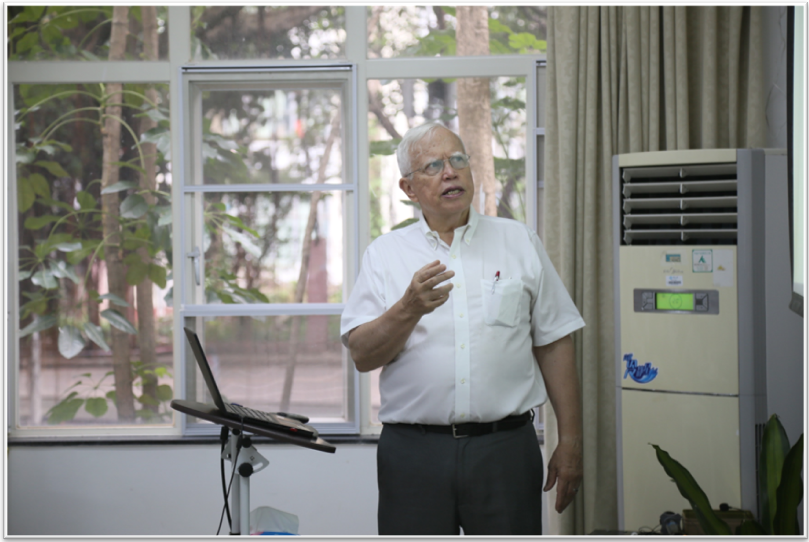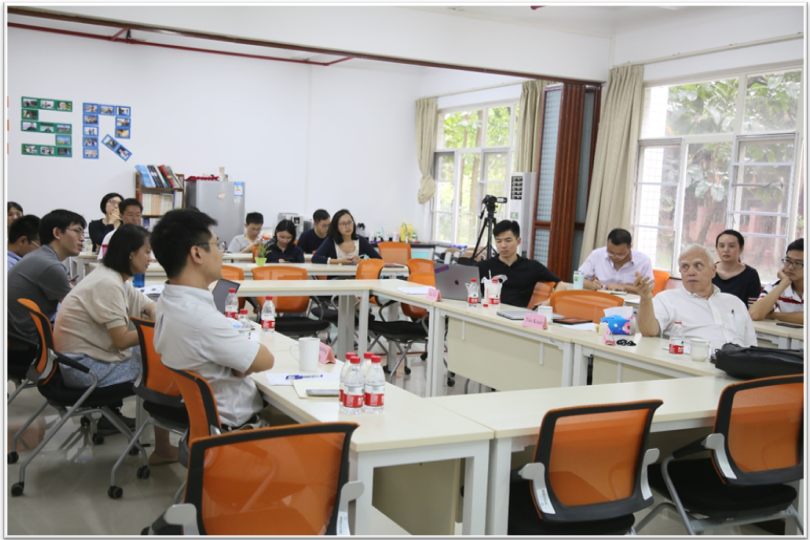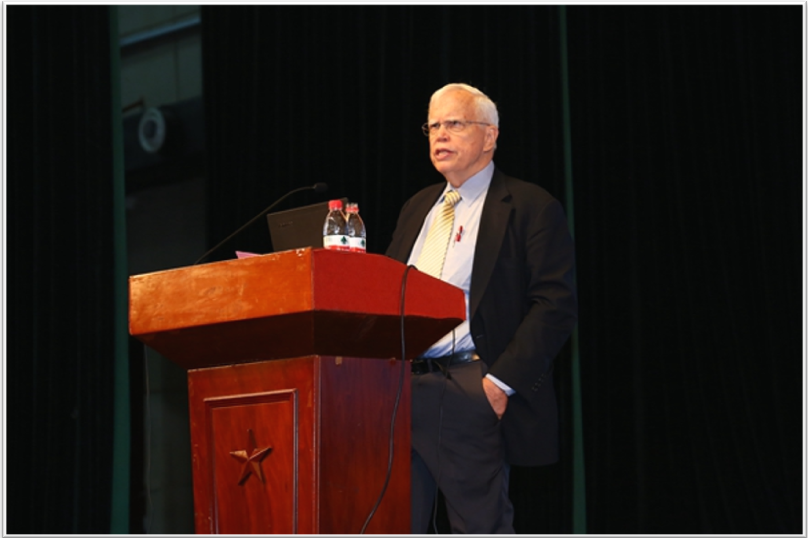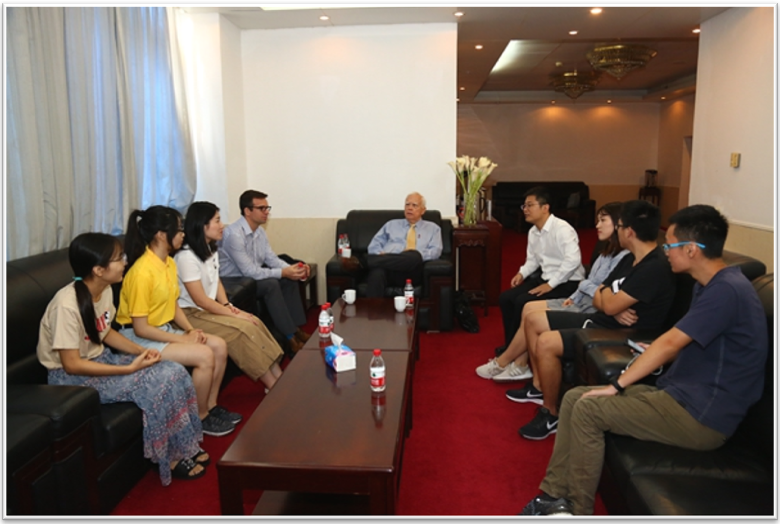On September 21, 2018, shortly before Mid-Autumn Festival, a Nobel Laureate and Henry Schultz Distinguished Service Professor of Economics at The University of Chicago, James J. Heckman paid a third visit to IESR – a visit well-anticipated by the whole University’s community due to numerous joint research projects calling for in-depth deliberation, as well as the two grand academic events that were yet to take place during his stay – 2018 Chicago-Jinan Joint Initiative Workshop, and James Heckman’s public lecture “China’s Investment in Skills”.
2018 Chicago-Jinan Joint Initiative Workshop
On September 25, IESR scholars were joined by James Heckman and a researcher at Mathematica Policy Research Prof. Tim Kautz to share and discuss their latest research at the 2018 Chicago-Jinan Initiative Workshop. Several outstanding presentations covering all-acompassing topics were delivered at the workshop, thus facilitating rigorous and fruitful discussion among the scholars.

James Heckman gives a presentation “American Inequality and Social Mobility Viewed Through a Danish Prism”

Discussion at the 2018 Chicago-Jinan Initiative Workshop
Presentations given at 2018 Chicago-Jinan Joint Initiative Workshop:
James Heckman – “American Inequality and Social Mobility Viewed Through a Danish Prism”;
Shuaizhang Feng – “Adjusting Labor Flows”;
Yi Chen – “Arrival of Young Talents Send-down Movement and Rural Education in China”;
Sisi Zhang – “Rising Household Income Inequality and Instability – Putting the Pieces Together”;
Tim Kautz – “The Effects of Situations on Measurements of Cognitive and Noncognitive Skills Among Primary School Students in Shanghai”;
Shu Cai – “Trade Liberalization and Human Capital Acquisition: Evidence from China”;
Bin Xie – “Institutional Discrimination and Assimilation: Evidence from the Chinese Exclusion Act of 1882”.
Lecture by James Heckman: China’s Investment in Skills
On September 26, James Heckman gave a public lecture “China’s Investment in Skills” that attracted an audience of more than 1200 people to the JNU assembly hall, thereafter offering several outstanding IESR students an incredible opportunity to have a face-to-face discussion with James Heckman himself.

James Heckman gives a public lecture at JNU assembly hall
Over the past 40 years, according to James Heckman, China has witnessed rapid development, therefore contributing significantly to the physical capital investment and massive middle-skill labor in the country. Nowadays, the burden of ageing population becomes heavier than ever before, hence invigorating Chinese government to recognize the value of human capital investment and develop a vast amount of quality manpower to respond to this challenge.
Since 2000, the number of Chinese graduates has been increasing on a remarkable scale. But, instead of centering human capital investment merely on higher education, high value must be also put to the preschool education, says James Heckman. A huge disparity between human capital investment and return on investment still continues to exist in various regions of China. Taking urban-rural divergence as an example, the disparity in the return on human capital investment has become even more striking, notwithstanding decrease in income inequality. Many studies indicate that the return on education in cities is greater than in rural areas. Likewise, the return on education of people holding urban hukou is significantly higher than the one of migrants who hold rural hukou. The reason of such disparity lies in the deficiency that is still prevalent in education, industry and return on investment.
Although migration has given impetus to the economic development, the rapid explosion of urban population has resulted in the decrease of educational recourses. A substantial amount of rural labor force is shifting to the urban areas but, due to the absence of educational opportunities in the cities that leaves migrant workers no other option but to leave children behind, children of migrant workers as of 2010 data compose only 35 percent of the whole children population under the age of 17. As regards family structure of left-behind children, the level of education and income of both parents and grandparents is significantly low which, unfortunately, can be easily passed on to children. Thus, in order to increase the return on education, government must give greater weight to early childhood education. Under current circumstances, opening private education market could serve as an effective tool to counter this problem and increase educational attainment among children of migrant workers, suggests James Heckman.

James Heckman meeting with IESR students
Up to this day, IESR and the Center for the Economics of Human Development (University of Chicago), led by Professor James Heckman himself, have joined their forces on multiple academic occasions, including the Summer School on Socioeconomic Inequality, the Asian Family in Transition Conference, as well as many other joint research projects, amongst whom a co-launched “Chicago-Jinan Joint Initiative on the Study of Human Development” can be surely considered as an “Academic Free Trade Zone” that not only links the abundant Chicago-Jinan academic resources, but also serves as a solid international platform that empowers long-lasting and successful cooperation in the field of socioeconomics, and also enables both sides to make one step forward towards solving key social development issues in today’s China.


